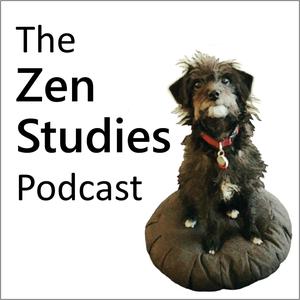
The Zen Studies Podcast
Domyo Burk
- 35 minutes 5 seconds292 - Ten Fields of Zen, Field 9 – Bodhisattva Activity: Enacting Vows to Benefit All Beings
Bodhisattva Activity is enacting vows to free all beings as well as yourself. This is an acknowledgment that you are interdependent with all beings and things, and such an aspiration can give a sense of purpose and direction to your whole life. Of course, it’s impossible to fulfill this vow literally, and when you try to put it into action it is no easy matter! It requires tangible engagement with the world, including other people. If you hide out in comfort, you’re unlikely to transcend self-centeredness. If you rely only on your own resources, you’re likely to exhaust yourself and limit your impact. How do you even decide what Bodhisattva Activity to undertake? There is much to be learned by practicing in this Field of Zen, which inoculates you against the delusion that you can attain true peace of mind by ignoring the suffering of others.
1 February 2025, 12:27 am - 43 minutes 50 seconds291 - Keizan's Denkoroku Lead Chapter: Shakyamuni's "I and All Beings"
In Episode 272, I discussed the third chapter of Zen Master Keizan’s book The Denkoroku, or the Record of the Transmission of Illumination. In the interest of thoroughness, I figured I’d start back at chapter one, with Shakyamuni Buddha’s “I and All Beings.” This text explores the nature of enlightenment and the tension between individuality and non-separation.
17 January 2025, 8:45 pm - 38 minutes 34 seconds290 - Ten Fields of Zen, Field 8 – Realization: Direct Experience of Reality-with-a-Capital-R
The eighth Field of Zen Practice is Realization, gaining a direct, personal experience of the truth. Realization helps you respond appropriately, allowing you to live by choice instead of by karma. Even more importantly, it gives you a larger perspective that can result in equanimity, even joy. There are different levels of truth, and the Dharma – Reality-with-a-Capital-R – is the biggest truth of all. Fortunately, it is a wonderful and liberating truth to wake up to. However, it’s important to understand that there is no “Realization” you can attain that means you know everything. The truth is infinite and there is always more to awaken to and embody.
29 December 2024, 12:31 am - 31 minutes 40 seconds289 - Ten Fields of Zen, Field 7 – Opening Your Heart: Self-Acceptance and Non-Separation (2 of 2)
This episode is the second half of the seventh chapter of my book-in-progress, The Ten Fields of Zen: A Primer for Practitioners. Listen to/read the previous episode (288) first, where I talk about the importance of Opening Your Heart and how that effort is viewed in the Buddhist tradition. In that episode I also discussed the four Brahmaviharas – goodwill, compassion, sympathetic joy, and equanimity. I finish the chapter in this episode by covering self-acceptance, practicing with the real, human relationships in your life, and Opening Your Heart in Sangha.
19 December 2024, 12:54 am - 36 minutes 20 seconds288 - 10 Fields of Zen, Field 7 – Opening Your Heart: Self-Acceptance and Non-Separation (1 of 2)
The seventh Field of Zen Practice is Opening Your Heart. Working explicitly to open your heart not only benefits other living beings, it puts you in accord with the Dharma and supports all other aspects of your practice. You work on radical self-acceptance to make Awakening and compassion possible. You work on real and personal relationships with other beings – overcoming your social fears, becoming more willing to be seen and known, learning to be authentic, and recognizing the Buddha-Nature manifested in others. Ultimately, self and other are not separate; in practice, you seek to manifest and realize this simultaneously.
29 November 2024, 9:45 pm - 11 minutes 47 seconds287 - A Few Useful Teachings for Tumultuous Times
In a time of political divisiveness, many of us look to the three treasures of Buddha, Dharma, and Sangha for solace, strength, and guidance. I offer a few Dharma teachings I have found useful for practicing in tumultuous times.
25 November 2024, 1:59 am - 27 minutes 40 seconds286 – Ten Fields of Zen, Field Six – Ending Dukkha: Taking Care of this Precious Life (2 of 2)
This episode is the second part of the sixth chapter of my book-in-progress, The Ten Fields of Zen: A Primer for Practitioners. In the last episode, I offered seven points about the role of Dukkha in our life and practice and discussed the first five points. In this episode I’ll finish the discussion with point #6: Buddhism offers a holistic approach to alleviating Dukkha, including maximizing our overall spiritual health, working with our karma, and curing its ultimate cause, and point #7: Even when our Dukkha is not extreme, it is a sign of lingering false views, so we continue to pay close attention to it and seek to end it.
16 November 2024, 11:32 pm - 24 minutes 56 seconds285 – Ten Fields of Zen, Field Six – Ending Dukkha: Taking Care of this Precious Life (1 of 2)
The sixth Field of Zen Practice is ending Dukkha (this is part of my book, The Ten Fields of Zen Practice: A Primer for Practitioners). While physical and emotional pain, discomfort, and longing are an inevitable part of human life, Dukkha is existential angst we add to such experiences, ranging from subtle uneasiness to acute anguish. It drives our unhealthy or harmful behaviors, so we seek to end Dukkha for the sake of self and others. Buddhism offers a holistic approach to doing this, including maximizing our overall spiritual health and working with our karma. However, Buddhism’s radical teaching is that Dukkha is a symptom of underlying spiritual illness caused by false views - so, through practice, our spiritual illness can be cured, and Dukkha ended.
1 November 2024, 12:28 am - 23 minutes 32 seconds284 - Reflections on Continuous Practice and Dogen's “Gyoji” (2 of 2)
It’s challenging to make our Dharma practice continuous – maintaining awareness and appropriate conduct each moment of our lives. In his essay Gyoji, or “Continuous Practice,” Zen Master Dogen doesn’t offer practical tips for mindfulness and pure conduct in everyday life, but instead challenges our limited ideas about what practice is. In this episode (part 2), I continue discussing four points I think Dogen makes about Gyoji.
24 October 2024, 10:57 pm - 30 minutes 25 seconds283 - Reflections on Continuous Practice and Dogen's “Gyoji” (1 of 2)
Our goal in practice is to live in accord with the truth, or the Dharma - not only while sitting in meditation or studying Buddhism, but every moment of our lives. In other words, we strive to make our practice continuous. It can be extremely challenging to maintain mindfulness and good behavior all the time. How can we make our practice more continuous? Not surprisingly, in his essay “Gyoji,” or Continuous Practice, Dogen does not give us practical tips but instead challenges our limited ideas about what practice is.
2 October 2024, 5:38 pm - 21 minutes 33 seconds282 – Cutting Moral Corners: Is Buddhism Compatible with 21st-Century Life? (2 of 2)
This is part two of my discussion “Cutting Moral Corners: Is Buddhism Compatible with 21st-Century Life?” In Part 1 I talked about the moral stress that arises from living a modern life, where almost every decision we make becomes a moral choice. I discussed how home leaving – or monasticism – was early Buddhism’s prescription for avoiding moral stress, and then how the Mahayana bodhisattva ideal become a model for lay practice. In this episode I address the matter of moral stress and how we might practice in the midst of it in order to free ourselves from dukkha, or suffering.
21 September 2024, 8:08 pm - More Episodes? Get the App
Your feedback is valuable to us. Should you encounter any bugs, glitches, lack of functionality or other problems, please email us on [email protected] or join Moon.FM Telegram Group where you can talk directly to the dev team who are happy to answer any queries.
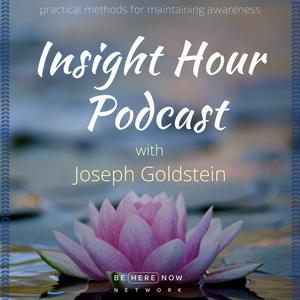 Insight Hour with Joseph Goldstein
Insight Hour with Joseph Goldstein
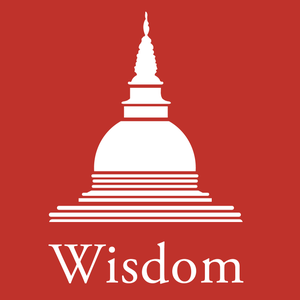 The Wisdom Podcast
The Wisdom Podcast
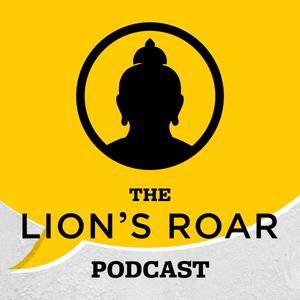 The Lion’s Roar Podcast
The Lion’s Roar Podcast
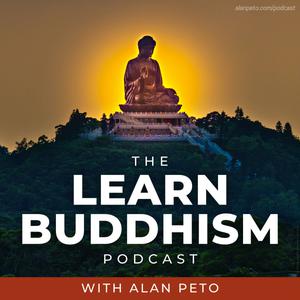 Learn Buddhism with Alan Peto
Learn Buddhism with Alan Peto
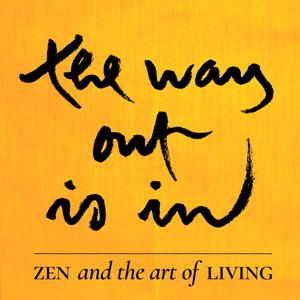 The Way Out Is In
The Way Out Is In
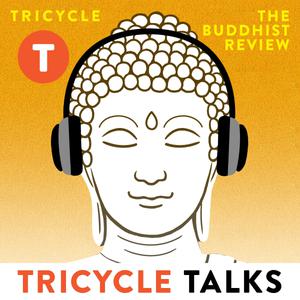 Tricycle Talks
Tricycle Talks